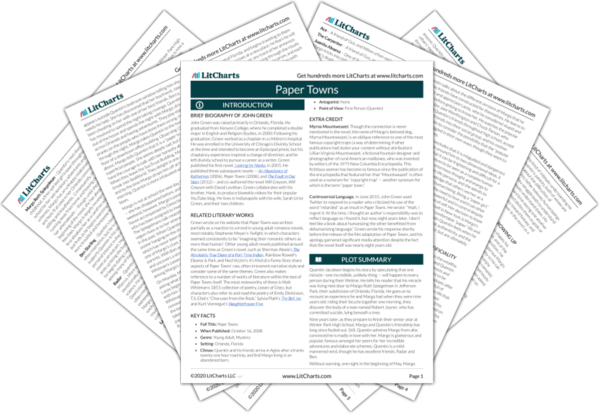Lacey calls
Quentin’s cell phone, asking to speak to
Margo. While they talk, apparently amiably, Quentin explores the barn. He finds Margo’s books: Sylvia Plath’s
The Bell Jar and Kurt Vonnegut’s
Slaughterhouse-Five. When Margo finishes her call with Lacey, she tells Quentin that his friends are staying at a nearby motel, and will be leaving in the morning with or without him. She tells Quentin she has made plans to leave for New York City that day. She adds that her original plan was to leave Orlando on graduation night rather than three weeks before, as she did, but that she made last-minute adjustments when she found out
Jase was cheating on her.
